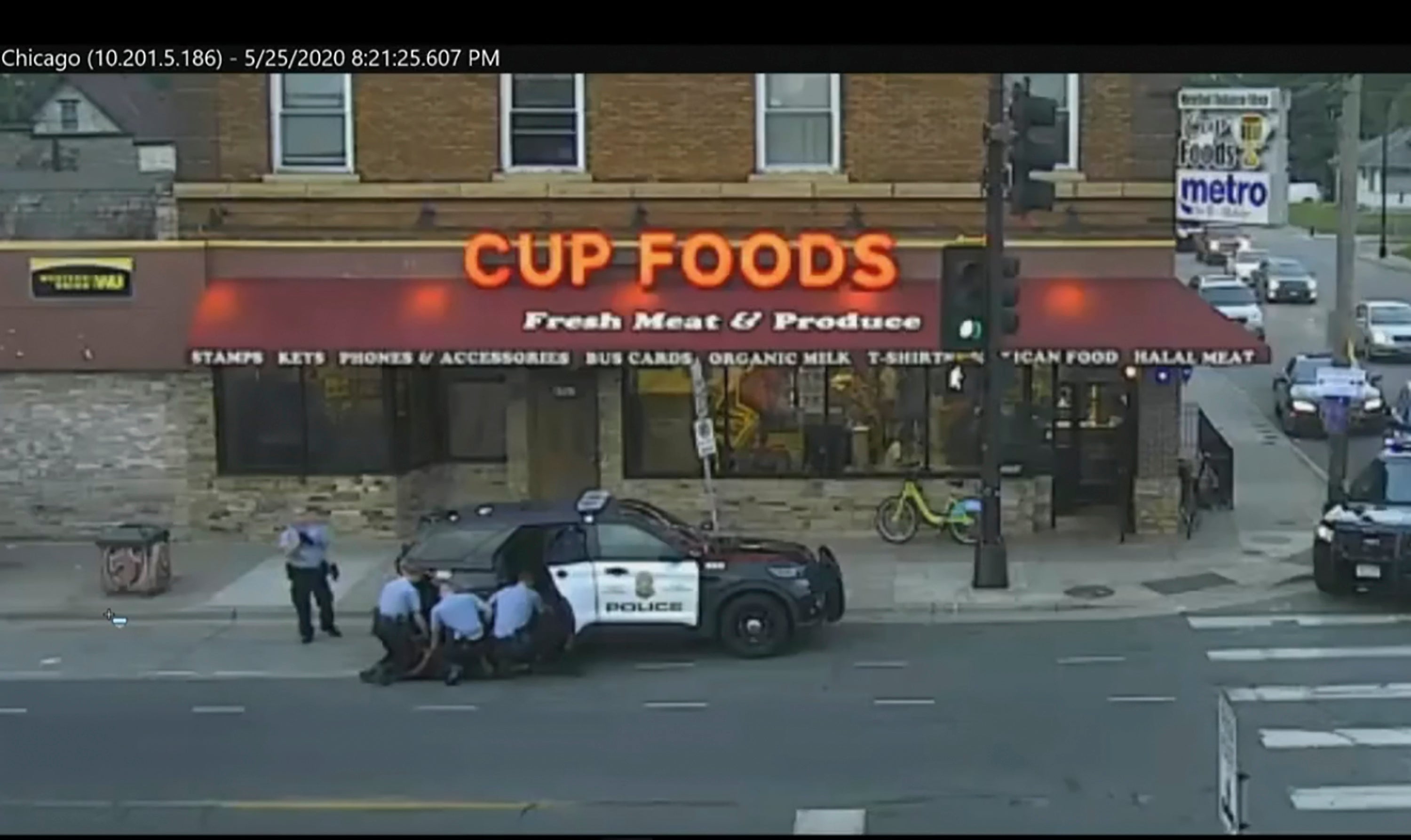Doctor expected to testify in trial of 3 cops in Floyd death
A medical doctor from out-of-state was expected to be among the government’s next witnesses as testimony continues in the federal trial of three former Minneapolis police officers charged with violating George Floyd’s rights

Your support helps us to tell the story
From reproductive rights to climate change to Big Tech, The Independent is on the ground when the story is developing. Whether it's investigating the financials of Elon Musk's pro-Trump PAC or producing our latest documentary, 'The A Word', which shines a light on the American women fighting for reproductive rights, we know how important it is to parse out the facts from the messaging.
At such a critical moment in US history, we need reporters on the ground. Your donation allows us to keep sending journalists to speak to both sides of the story.
The Independent is trusted by Americans across the entire political spectrum. And unlike many other quality news outlets, we choose not to lock Americans out of our reporting and analysis with paywalls. We believe quality journalism should be available to everyone, paid for by those who can afford it.
Your support makes all the difference.A medical doctor from out-of-state was expected to be among the government's next witnesses as testimony continues in the federal trial of three former Minneapolis police officers charged with violating George Floyd’s rights.
Federal prosecutors say Thomas Lane J. Alexander Kueng and Tou Thao deprived Floyd of his rights when they failed to give him medical aid as Officer Derek Chauvin knelt on the Black man’s neck for 9 1/2 minutes while Floyd was handcuffed, facedown and gasping for air. Kueng and Thao are also accused of failing to intervene.
The May 2020 videotaped killing triggered protests worldwide and a reexamination of racism and policing.
Prosecutors said they plan to call a doctor to the stand Wednesday, though they did not publicly share the physician's name.
Testimony so far this week has included that of Dr. Andrew Baker — the chief medical examiner for Hennepin County who deemed Floyd's death a homicide. He testified Tuesday that he initially told prosecutors after Floyd’s autopsy that there was no physical evidence that he died from insufficient oxygen, and that he later added “neck compression” as a factor, but said he wasn’t pressured to do so.
Baker said Floyd died after police “subdual, restraint and neck compression” caused his heart and lungs to stop. He said heart disease and drug use were factors but not the “top line” causes. He said Floyd had an enlarged heart that needed more oxygen than normal, as well as narrowed arteries.
Under questioning from Thao’s attorney, Robert Paule Baker said his office received “hundreds” of calls, some harassing and threatening. Former Washington, D.C., medical examiner Dr. Roger Mitchell, who is an expert in in-custody deaths, also called Baker and was unhappy. Baker said the two talked about neck compression, and Mitchell also planned to publish a critical op-ed in The Washington Post. Baker said he considered Mitchell’s opinion and analysis before adding neck compression to his report.
Under further questioning from prosecutors, Baker said it’s not unusual to consult with fellow pathologists and none of those discussions — nor harassing phone calls — caused him to reconsider his conclusions on Floyd’s cause of death.
Baker also said neck compression was a unique form of restraint that he’d never seen used before.
Paule asked Baker if it was possible that Floyd was having trouble breathing during the struggle with officers because he was experiencing a “cardiac event." Baker replied that it was possible — but that he couldn’t say for sure.
Floyd, 46, struggled with officers when they tried to put him in the vehicle and after they put him on the ground. Kueng knelt on Floyd’s back, Lane held his legs and Thao kept bystanders back.
Responding to questions from defense attorneys, Baker said he did not know of a way that Kueng's position or Lane's position would have affected Floyd's ability to breathe.
Kueng, who is Black, Lane, who is white, and Thao, who is Hmong American, are charged with willfully depriving Floyd of his constitutional rights while acting under government authority. One count against all three officers alleges that they saw that Floyd needed medical care and failed to help. A count against Thao and Kueng contends that they didn't intervene to stop Chauvin. Both counts allege that the officers’ actions resulted in Floyd’s death.
Chauvin was convicted of murder and manslaughter in state court last year and pleaded guilty to a federal civil rights charge. Lane, Kueng and Thao also face a separate state trial in June on charges alleging that they aided and abetted murder and manslaughter.
___
Webber contributed from Fenton, Michigan.
___
Find AP’s full coverage of the killing of George Floyd at: https://apnews.com/hub/death-of-george-floyd